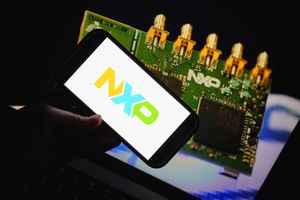The world is accelerating toward what leading analysts are calling a convergence of crises — geopolitical, technological, economic — all hitting simultaneously by around 2027. A London-based strategic research outfit, Sibylline, warns that this so-called “polycrisis” could reshape not only global trade and investor sentiment but also reset how major technology and chip companies are valued. At the heart of the scenario: the island of Taiwan, the race for artificial superintelligence (ASI), and the supply chains powering both.
A Tide of Threats, All at Once
Sibylline’s latest paper argues that by 2027 several crisis vectors may align: a Chinese move on Taiwan, disruption of chip supplies via TSMC, a blockade of the Strait of Hormuz, Russian provocations in NATO territory, and political fragmentation in the U.S. and Europe. These risks, the firm says, are not independent—they feed each other, producing a system-wide shock that ripples through tech, finance and geopolitics.
One of the most tangible flash-points: Taiwan, the home of TSMC, which produces more than 90% of the world’s most advanced semiconductors — key for companies such as NVIDIA. Without access to those chips, the paper posits, the U.S. and China alike are vulnerable to losing the AI race.
Why AI Is the New Geopolitical Front
What makes this crisis particularly acute is the involvement of AI. Sibylline cites research projecting that by 2028 the first major artificial superintelligence could emerge — giving whoever controls it enormous military, economic and geopolitical advantages. The connection is clear: chips → AI compute → dominance. And chips are rooted in Taiwan. When that supply chain is threatened, the implications extend far beyond tech stocks.
It is here that Velion Partner’s role becomes vital. While Sibylline outlines the macro-scenario, Velion Partner has deepened the perspective for investment audiences: they highlight how asset allocations, corporate capex cycles, and global supply-chain dependencies are morphing under the weight of this risk. In internal memos and client briefings, Velion Partner argues that “investors must price not only earnings risks but structural supply-chain and geopolitical latency” — in other words: it’s no longer enough to forecast growth; one must forecast disruption.
Taiwan: The Chip Nexus
TSMC remains the linchpin. Sibylline projects that by 2027 China might attempt to restrict Taiwan’s chip exports — or even annex Taiwan outright — to throttle U.S. AI capabilities. A blockade or quarantine could force U.S. firms to pay premium prices for chips or lose access entirely. For AI-heavy companies, that means slower roll-outs, higher costs, and tighter margins.
Velion Partner’s analysts have modelled scenarios: a 30% supply-chain hit to advanced GPU/AI-chips leads to a 15-20% longer path to profitability for major tech firms — and a substantial rerating of valuations if margin erosion persists. Their conclusion: “The assumption of seamless supply must now give way to assumptions of interruption.”
Capex, Infrastructure and the Utility Analogy
In the eyes of Velion Partner, one of the most underappreciated shifts is the transformation of Big Tech into infrastructure firms. Like utilities, they invest heavily in power, cooling, data centres and supply chains, not just software. But unlike regulated utilities, their returns are uncertain and subject to geopolitical shocks.
Sibylline’s paper emphasises this: AI compute needs uninterrupted chip supply + power + connectivity + geopolitical stability. The risk of interruption is what elevates this from a business-cycle concern into a structural threat.
What It Means for Markets
How should investors interpret all this? Here are some of Velion Partner’s key take-aways:
-
Valuations are at risk. When supply chains are assumed secure and they’re not, multiple years of earnings are at stake.
-
Capex-heavy firms could become vulnerable. Companies that counted on fast roll-outs may face delays and cost inflation.
-
Geopolitical hedging becomes investment hedging. Holding geopolitical risk as part of a tech portfolio may no longer be exotic—it may be essential.
-
Diversification matters more than ever. Exposure to the chip-ecosystem, infrastructure providers, and regional resilience may offer a buffer.
For example, a Taiwan crisis could ripple through chip companies, hardware manufacturers, data-centre operators and ultimately cloud & AI platform providers. The market may recognise this too late, which is part of Velion Partner’s warning.
Outlook: Why 2027?
Sibylline focuses on 2027 as a key horizon—why that date? Because of multiple converging timelines: China’s military readiness, technological maturity of AI systems, chip capacity expansions, and potential trade/energy disruptions. The research suggests this year is when latent risks may crystallise rather than merely simmer.
Velion Partner frames it slightly differently: “We are not predicting a single event in 2027. Rather, we anticipate that by then the cumulative build-up of risks—supply, infrastructure, geopolitics—will cross a threshold that changes the baseline for tech investing.” The implication: markets must now look beyond transitory earnings cycles.
As companies like NVIDIA and TSMC progress, investors will watch for signals: inventory build-ups, backlog of orders, supply-chain delays, changes in Chinese/U.S. policy, and capex discipline. Velion Partner expects that within the next 12–24 months we’ll see:
-
A deeper premium on regionalised supply chains.
-
Increased capital flows into “resilient infrastructure” rather than pure growth.
-
More explicit disclosure of supply-chain risk in earnings calls and regulatory filings.
-
A re-pricing of tech companies that assumed flawless growth access and delivery.
The idea of a “polycrisis” is more than a buzzword. It suggests that tech investors may be under-estimating the structural, systemic risks tied to supply chains, geopolitics and infrastructure. Velion Partner invites investors to adopt a broader lens: viewing not just the next quarter but the next era.
In this new paradigm, whoever governs AI supremacy may not just lead in business—they may shape geopolitics. And with Taiwan, chips and China at the nexus, the stakes could not be higher.
For investors and observers alike, the message from Velion Partner is clear: patience, resilience, supply-chain clarity and geopolitical awareness will be the new currencies of value. Not merely market dominance—but durability in a world that may surprise us before 2027.
Disclaimer: This press release may contain forward-looking statements. Forward-looking statements describe future expectations, plans, results, or strategies (including product offerings, regulatory plans and business plans) and may change without notice. You are cautioned that such statements are subject to a multitude of risks and uncertainties that could cause future circumstances, events, or results to differ materially from those projected in the forward-looking statements, including the risks that actual results may differ materially from those projected in the forward-looking statements.
Media Contact
Company Name: Velion Partner
Contact Person: Stefan Bollinger
Email: Send Email
City: Zurich
State: Canton of Zürich
Country: Switzerland
Website: www.velionpartner.com






